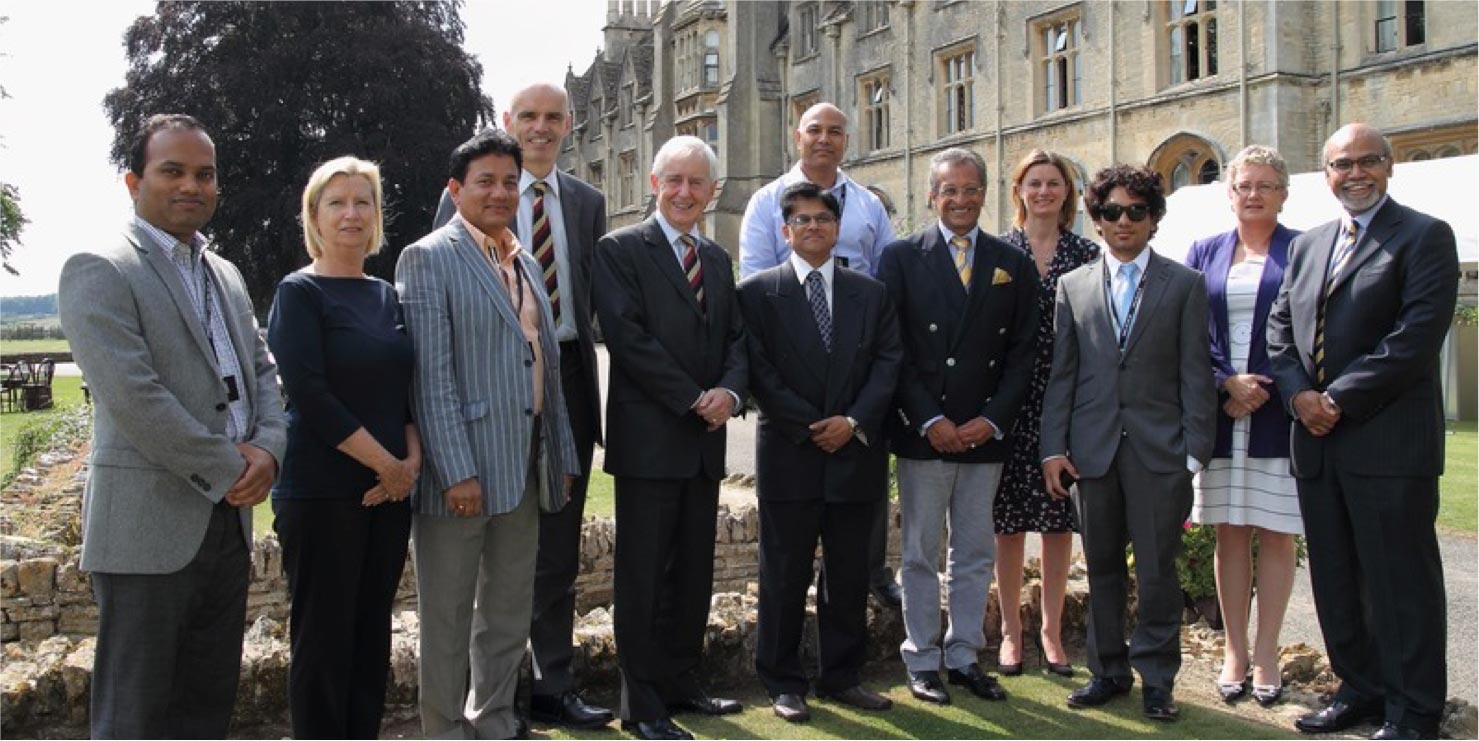
The Royal Agricultural University (RAU) welcomed visitors from RuralShores, an Indian based company which is transforming India’s rural economy with IT based business solutions.
RAU Principal Professor Chris Gaskell greeted the visitors and was joined by Professor Kanes Rajah from the School of Business and Entrepreneurship (SBE) and Simon King from the Business Development Centre (BDC). Dr Lorna Collins from SBE and Sally Story from BDC also joined in to assess the opportunities
available within the Corporate Plan of the University.
The CEO Mr Murali Vullaganti was accompanied by a small team and UK based businessman Mr Mohamed Amersi from Inclusive Ventures Limited, which is based at the Saïd Business School, University of Oxford. Mr Ajeya Sumargi from Nepal Satellite Telecoms Pvt Ltd also joined the meeting to explain the project he is starting within rural Nepal in partnership with RuralShores.
The discussions explored the idea that similar approaches might be adopted to support farmers in the UK rural economy or by up skilling the rural unemployed who fall within the NEET designation (Not in Education Employment or Training).
RuralShores was set up in 2009 and there are already 25 centres operating successful call centres and document processing. as well as providing IT based support to companies and corporates including direct engagement with Telecom. Support from corporate India has been impressive. In five short years this social enterprise has succeeded in creating some 5000 jobs within the rural economy. Its goal is to reach 200.000 in the next five years. The opportunities for the RAU to explore the value of similar models for rural Britain are considerable.
RAU Principal Professor Chris Gaskell commented: ”Many of the innovations of value for today’s businesses. be they small or large enterprises, rural or urban, require IT knowledge and skills. In the context of the industries that the RAU
works with, the use of information technology is as much a rural skill as many of the more traditional competencies that we teach. And many of those who are driving innovation in farming and land and environmental management left University or College some while ago!”
This article was originally published on the Royal Agricultural University website in July 2014.

